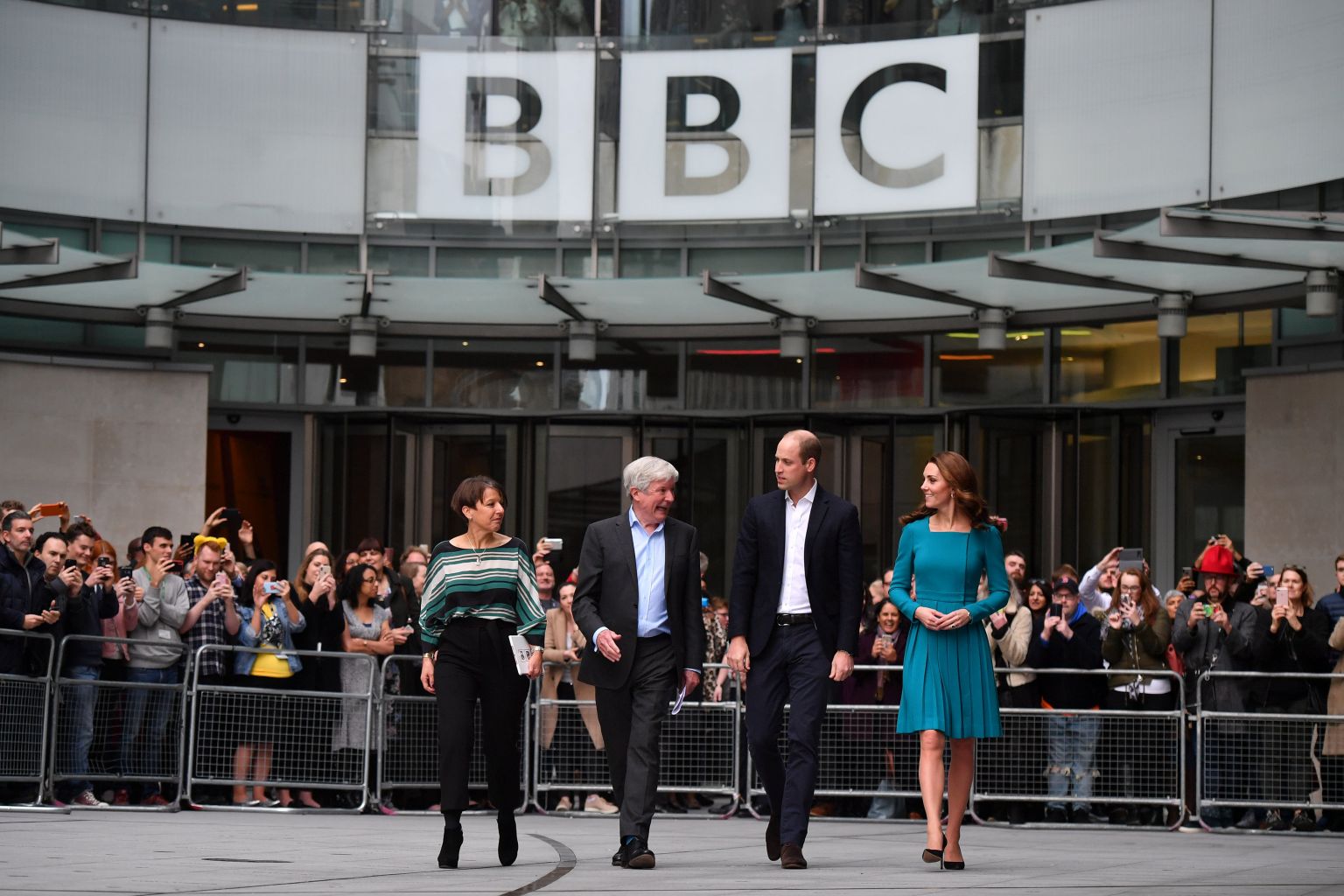BBC seeking new EU permits as no-deal Brexit risk grows
Sign up now: Get ST's newsletters delivered to your inbox

Britain's Prince William and Catherine, Duchess of Cambridge, visiting BBC Broadcasting House in London.
PHOTO: REUTERS
LONDON (BLOOMBERG) - The BBC is in talks with Irish and Dutch authorities to obtain licenses allowing it to continue broadcasting across the European Union in the event of a no-deal Brexit, according to two people familiar with the matter.
The UK licenses that the taxpayer-funded British Broadcasting Corporation uses to beam hit shows including nature documentary Blue Planet 2, Top Gear and its World News channel into other EU countries will no longer be valid unless the UK leaves the bloc on March 29 with a withdrawal agreement in place.
British businesses are bracing for the growing possibility that it won't be.
Prime Minister Theresa May is struggling to get Parliament to support her deal with the EU that would prolong current broadcast licensing arrangements for two years while Britain negotiates a new relationship with its biggest trading partner.
On Tuesday, May's Cabinet agreed to step up preparations for a no-deal Brexit.
The BBC is yet to make a final decision on international broadcast licenses, said the people, who asked not to be identified as the discussions are confidential.
For more on the challenges broadcasters face from Brexit, read this.
International media companies with regional hubs in Britain, such as Discovery and Comcast's NBC Universal, have also applied for broadcast licences elsewhere in the EU to safeguard the transmission of their channels on the continent.
"The BBC have a big problem," said David Justin, president of One Six International, a media advisory firm based in Amsterdam. "If it's a hard Brexit, they would face a blackout in some countries."
A BBC spokesman said the organisation will keep the situation "under close review to ensure that we can continue to best serve our audiences in any changed regulatory environment."
Representatives of the Dutch and Irish media regulators had no immediate comment.
The UK is the broadcasting hub of Europe, home to more channels than any other EU member state. International media companies collectively spend about £1 billion (S$1.7 billion) annually in the UK on things like content, production facilities and technology, according to research by media analysis firm Oliver & Ohlbaum commissioned by the Commercial Broadcasters Association lobby group.
Through its commercial arm BBC Studios, the BBC makes some channels available elsewhere in the EU, such as BBC Entertainment, which carries re-runs of shows such as sci-fi hit Doctor Who, Bargain Hunt and Antiques Roadshow.
The BBC generates hundreds of millions of pounds of revenue from EU markets, according to the UK's telecommunication regulator Ofcom.
EU rules say broadcasters need to have their head office, a significant part of their workforce or a satellite up-link in the country to qualify for a license there, a requirement which could see the BBC move some staff and operations into the EU.
Adam Minns, executive director at the Commercial Broadcasters Association, said the expansion of international channels has been one of the biggest drivers of economic growth and employment in the UK television industry.
"But going forward, if the UK cannot grant an international channel a broadcasting license that is recognised by other countries, it is going to be very hard to sustain that growth in the medium to long-term," said Minns, who declined to comment on the BBC's situation.


